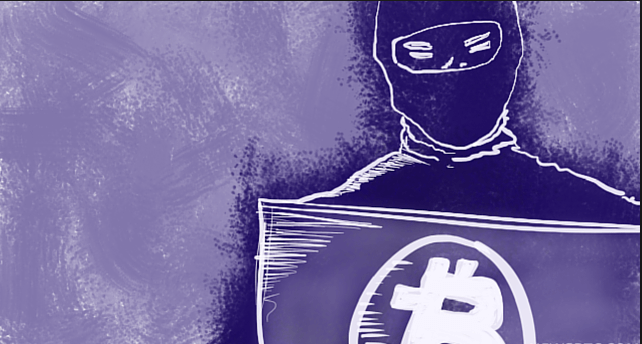Analysis: What Does Bitcoin Regulation Mean for Darknet Marketplaces?
It’s well known that the internet was originally developed for military purposes and quickly attracted people who saw its potential for cybercrime. In this sense, the internet is similar to Bitcoin: both are revolutionary technologies that were first adopted by criminals and various enthusiasts. Back in 2009, the first Bitcoin holders were cryptography fans and finance professionals, but it didn’t take long for the currency to catch the attention of those trading illegal goods.
The Darknet’s Adoption of Bitcoin
Bitcoin quickly gained popularity on the darknet due to its perceived anonymity and the difficulty of tracking transactions. Anyone could create a wallet and start conducting shady business online, bypassing the traditional financial system. No oversight, no taxes. In 2010, if you told someone you bought something with Bitcoin, they’d look at you like you were from another planet.
There are two main features that made Bitcoin attractive to the darknet:
- Irreversible transactions: Unlike credit cards or PayPal, Bitcoin transactions can’t be reversed.
- Decentralization: This provided a sense of anonymity (Note: Bitcoin is not truly anonymous, as we’ve discussed before).
In practice, it’s hard to identify a wallet’s owner. All you can see is that a certain amount was sent from one address to another.
Note: Companies like Chainalysis are now very effective at analyzing Bitcoin transactions, wallets, and their connections. By studying payment patterns and other data, they can often identify the real owner of an address. More on this below.
Silk Road: Bitcoin’s Darknet Pioneer
If you’re at all familiar with cryptocurrency or the dark web, you’ve probably heard of the legendary Silk Road marketplace and its creator, Ross Ulbricht. He launched the first major platform to launder billions of dollars in illicit funds using Bitcoin, but was caught in 2013 and the site was shut down.
Silk Road set the “best practice” for using Bitcoin to pay for illegal goods and services online. But it’s important to note: Bitcoin is not anonymous, but pseudonymous. You’re not 100% protected when buying illegal goods with it. There have been many cases of buyers and sellers from Silk Road being caught years after the site was closed, all thanks to Bitcoin transaction analysis.
Where Are We Now?
Bitcoin is still used by most darknet marketplaces and is popular among sellers of various illicit goods and services. Many foreign platforms have built Bitcoin mixers into user wallets to try to obscure transaction trails when paying for goods or services.
After Silk Road was shut down, some U.S. law enforcement officials claimed Bitcoin was dead, but its price in 2017 and the first half of 2018 proved otherwise.
Note: There’s always demand for illegal goods, and you can buy them with Bitcoin, so demand for Bitcoin remains. This cycle is essentially endless.
Calls for Regulation
Bitcoin became a kind of “gold rush” from 2017 through the first half of 2018, with a bull market, rapid growth, and plenty of lucky people making fortunes. This attracted all sorts of intrigue: market manipulation, insider trading by “whale” traders, money laundering, and tax evasion. And, of course, the infamous scam ICOs that made more money than anyone else in the market.
Many exchanges became centralized, and governments started showing interest in analyzing the Bitcoin blockchain and regulating cryptocurrency.
Legal Status
Most developed countries treat Bitcoin as property or a similar asset and allow its use and trading. The U.S. Securities and Exchange Commission (SEC) and the Commodity Futures Trading Commission (CFTC) are discussing possible regulations and B2B cooperation to ensure compliance with financial laws.
FinCEN, a bureau of the U.S. Treasury, has already issued guidelines for those exchanging cryptocurrencies. Exchanges are classified as “money transmitters” and are legally required to identify users and help combat money laundering. The SEC has also issued numerous warnings about the volatility and fraud risks in trading and participating in ICOs.
While the international regulatory environment is still ambiguous, a recent G20 meeting in Argentina declared that the world’s leading economies will regulate crypto-assets to prevent money laundering and terrorist financing, in line with Financial Action Task Force (FATF) standards.
To crack down on fraud and money laundering in international trade, G20 countries acknowledged that financial infrastructure is becoming increasingly digital and that stronger measures are needed to stop illegal trade. This could include extraditing those involved in asset theft to the countries where the law was broken.
One priority area is taxation. A “global, fair, sustainable, and modern international tax system” is being developed.
What’s Next?
Nothing much changes. Criminals continue to invent new ways to hide their identities: Bitcoin mixers, more privacy-focused cryptocurrencies (like DASH), complex financial chains to cash out into fiat, and more. Every regulation faces resistance, so all we can do is watch and see how it all plays out. Will Bitcoin die? Personally, I doubt it. It’s clear that someone is manipulating the price, and demand for coins remains steady, as does demand for drugs, illicit services, and more. Imagine if all marketplaces suddenly switched to another cryptocurrency—what do you think would happen to its price?



